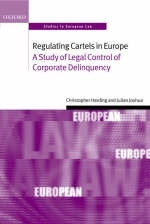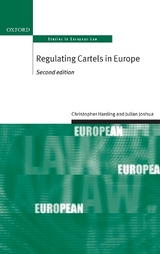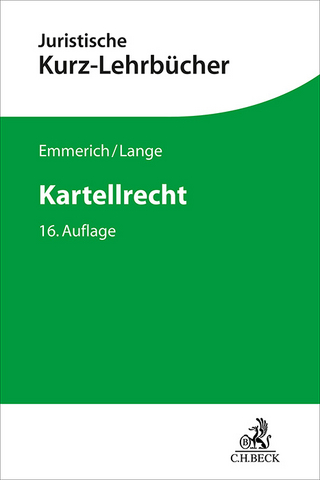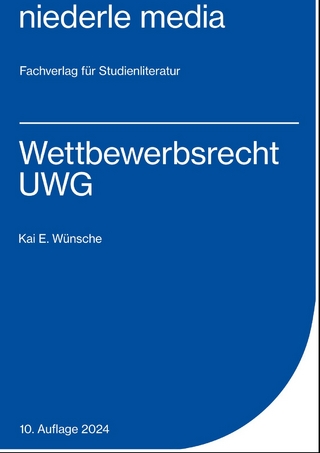
Regulating Cartels in Europe
Seiten
2003
Oxford University Press (Verlag)
978-0-19-924244-3 (ISBN)
Oxford University Press (Verlag)
978-0-19-924244-3 (ISBN)
- Titel erscheint in neuer Auflage
- Artikel merken
Zu diesem Artikel existiert eine Nachauflage
Focusing on legal regulation of antitrust violations, involving powerful corporate producers and traders operating across Europe, this study traces the development of cartel regulation in Europe. It takes into account economic arguments, incorporates a historical perspective, and evaluates different legal strategies used by competition regulators.
One of the most contentious and high-profile aspects of European Community competition law and policy has been the regulation of what may be described as serious antitrust violations, typically involving large and powerful corporate producers and traders operating across Europe, if not also in a wider international context. Such 'hard core' cartels characteristically engage in practices such as price fixing, bid rigging, market sharing and limiting production in order to ensure 'market stability' and maintain and increase profits. There is little doubt now in terms of competition theory and policy at both international and national levels about the damaging effect of such trading practices on public and consumer interests, and such cartels have been increasingly strongly condemned in the legal process of regulating and protecting competition. Indeed, a number of legal systems are now following the American lead in criminalizing such activity.
This may therefore be seen as the 'hard end' of the enforcement of competition policy, requiring more confrontational and aggressive methods of regulation, yet also presenting considerable challenges to effective enforcement on account of the economic power, sophistication and determination of the typical participants in such cartels. The focus of this study is a critical evaluation of the way in which European-level regulation has evolved to deal with the problem of anti-competitive cartels. It traces the historical development of cartel regulation in Europe, comparing the pragmatic and empirical approach traditional in Europe with the more dogmatic and uncompromising American policy on cartels and asks whether a fully-fledged criminal proceeding (with its attendant level of legal safeguards) is the most appropriate approach to legal regulation.
One of the most contentious and high-profile aspects of European Community competition law and policy has been the regulation of what may be described as serious antitrust violations, typically involving large and powerful corporate producers and traders operating across Europe, if not also in a wider international context. Such 'hard core' cartels characteristically engage in practices such as price fixing, bid rigging, market sharing and limiting production in order to ensure 'market stability' and maintain and increase profits. There is little doubt now in terms of competition theory and policy at both international and national levels about the damaging effect of such trading practices on public and consumer interests, and such cartels have been increasingly strongly condemned in the legal process of regulating and protecting competition. Indeed, a number of legal systems are now following the American lead in criminalizing such activity.
This may therefore be seen as the 'hard end' of the enforcement of competition policy, requiring more confrontational and aggressive methods of regulation, yet also presenting considerable challenges to effective enforcement on account of the economic power, sophistication and determination of the typical participants in such cartels. The focus of this study is a critical evaluation of the way in which European-level regulation has evolved to deal with the problem of anti-competitive cartels. It traces the historical development of cartel regulation in Europe, comparing the pragmatic and empirical approach traditional in Europe with the more dogmatic and uncompromising American policy on cartels and asks whether a fully-fledged criminal proceeding (with its attendant level of legal safeguards) is the most appropriate approach to legal regulation.
INTRODUCTION: TALKING ABOUT CARTELS: THE MAIN ELEMENTS OF ANALYSIS AND DISCUSSION; I. Business Cartels0: Sleeping with the Enemy; III. Cartels in Europe 1870-1945: Das Kartellproblem; IV. Cartels in Europe 1945-70: From Registrable Agreement to Concerted Practice; V. A Narrative of Cartel Enforcement in Europe, 1970 to the Present Time; VI. Proof of Cartel Delinquency: Fashioning the European Cartel Off; VII. Judicial of Cartel Control: Testing the Evidence and Due Process; VIII. Negotiating Guilt: Leniency and Breaking the Code of Silence; IX. Sanctions : Dealing with Business Delinquency; X. Cartel Law in the Twenty-First Century: Globalized and Criminal
| Erscheint lt. Verlag | 1.10.2003 |
|---|---|
| Co-Autor | Julian Joshua |
| Verlagsort | Oxford |
| Sprache | englisch |
| Themenwelt | Recht / Steuern ► EU / Internationales Recht |
| Recht / Steuern ► Wirtschaftsrecht ► Wettbewerbsrecht | |
| Wirtschaft ► Betriebswirtschaft / Management ► Planung / Organisation | |
| Wirtschaft ► Betriebswirtschaft / Management ► Unternehmensführung / Management | |
| ISBN-10 | 0-19-924244-5 / 0199242445 |
| ISBN-13 | 978-0-19-924244-3 / 9780199242443 |
| Zustand | Neuware |
| Haben Sie eine Frage zum Produkt? |
Mehr entdecken
aus dem Bereich
aus dem Bereich
mit Preisangabenverordnung
Buch | Hardcover (2023)
C.H.Beck (Verlag)
139,00 €



